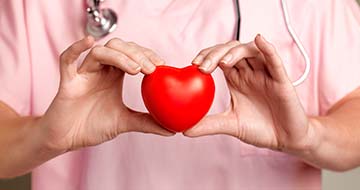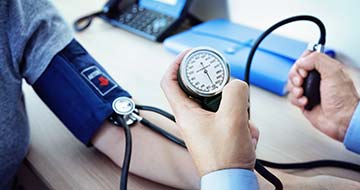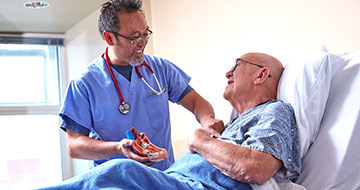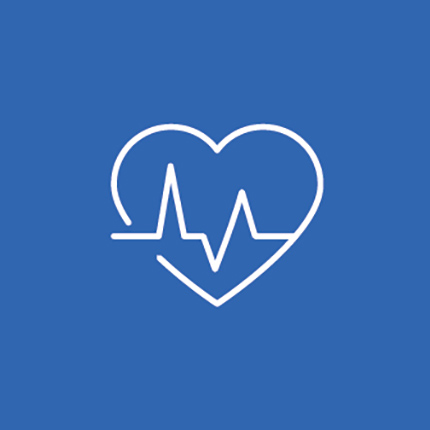What Are the Most Common Cardiovascular Diseases?
Cardiovascular diseases are a group of conditions that affect the heart and blood vessels. Usually associated with a build-up of fat in the arteries and increased risk of blood clots, cardiovascular diseases are associated with damage to arteries in the brain, heart, kidneys and eyes.
There are four main types of cardiovascular diseases, namely:
- Coronary heart disease
Coronary heart disease occurs when there is a blockage or insufficient oxygen-rich blood to the heart. This causes strain on the heart, which can lead to more severe conditions such as angina, heart attacks, severe and heart failure. - Stroke and transient ischemic attack (mini-stroke)
The difference between a stroke and a transient ischemic attack or a mini-stroke is the disruption of blood supply to the brain. A stroke is experienced when the blood supply is cut off while a mini-stroke is experienced when the blood supply is temporarily disrupted. - Peripheral arterial disease
Peripheral arterial disease occurs when there is a blockage in the arteries, usually in the legs. Symptoms of peripheral heart disease may include dull or cramping leg pain, hair loss on the legs and feet, numbness and weakness of the legs and persistent ulcers on the legs and feet. - Aortic disease
Aortic disease is the collective term of conditions that affect the aorta, the largest blood vessel in the body. An aneurysm is the most common aortic disease. This is when the aorta weakens and bulges outwards.
Heart Emergencies
Heart emergencies include heart attacks, cardiac arrests, angina attacks or unstable angina. Symptoms of a heart emergency may include:
- Pressure, tightness or squeezing pain or discomfort at the center of the chest that doesn’t go away
- Pain that radiates down to the left arm or both arms or the neck, jaw, back or stomach
- Fainting
- Seizures
- Difficulty of breathing
- Rapid or low, undetectable heartbeat
- Blue or pale tingling of knees, hands or lips
- Chest pain
- Breathlessness
- Nausea
- Sweating
- Coughing up blood
If you or your loved one experiences these symptoms, go to the nearest heart hospital or call 911.
What To Do During Cardiac Emergencies
- Call 911 for an ambulance, follow up if things worsen
- If outside, stay with the patient until help arrives
- Stay calm
- Ensure scene safety
- Check for response
- Check for no breathing. If the patient is not breathing, begin CPR with compressions.
- When the paramedics arrive, tell them if the patient has taken medications while waiting for them to come.
Heart Attack Emergency Treatment
- Call an ambulance.
- Ask the patient to sit and rest.
- Let the patient take one aspirin if they are not allergic.
- Stay with the patient until the paramedics arrive.
- When the paramedics arrive, tell them that the patient has taken an aspirin.
Cardiac Arrest Emergency Treatment
- If you’ve phoned an ambulance, the person on the line will guide you to perform chest compressions.
- If there’s another person and a defibrillator available, the other person can go collect it.
Angina Attack Emergency Treatment
- Call 911 or an ambulance.
- Ask the patient to sit.
- Ensure the patient takes one dose of glyceryl trinitrate (GTN) spray or tablet. Then wait for 5 minutes.
- If the pain or breathlessness continues, let them take another dose of GTN spray or tablet. Then wait another 5 minutes.
- If two doses of GTN spray or tablet doesn’t help, call an ambulance.
- Let the patient take an aspirin if they are not allergic.
- When the paramedic arrives, tell them what the patient took while waiting for them to come.
Causes and Risk Factors of Cardiovascular Diseases
There is no pinpointing the exact cause of cardiovascular disease, but there are risk factors that can increase the chances of having cardiovascular disease. Our cardiologists in Memphis highly recommend people over 40 have their hearts checked every five years. Our cardiologists will assess the following risks during your health check:
High blood pressure. High blood pressure is often called a “silent killer” as it can occur with little or no symptoms. It is a medical condition where blood flow through the arteries and blood vessels is too high. Heart specialists typically prescribe a lifestyle change or medication to maintain healthy blood pressure.
Unhealthy cholesterol levels. There are two types of cholesterol: the good (high-density lipoprotein; HDL) and the bad (low-density lipoprotein; LDL). Good cholesterol (HDL) protects our hearts from heart diseases, while bad cholesterol (LDL) can cause plaque buildup in artery walls.
Diabetes Mellitus. Diabetes causes sugar to build up in the blood. Talk with one of our heart doctors in Memphis to prevent or manage your diabetes and any other risk factors.
Obesity. Obesity is associated with higher body fat, higher bad cholesterol and lower good cholesterol. It can also lead to high blood pressure and diabetes, which can lead to heart disease.
Other lifestyle choices can increase the risk of having cardiovascular diseases, such as:
- A diet high in saturated fats, trans fat and cholesterol.
- Not getting enough physical activity.
- Excessive alcohol intake.
- Tobacco use.
There are also certain risk factors that we have no control over, such as family history, age, sex and race that increase the chance of developing heart disease.
Preventing Cardiovascular Diseases
Cardiovascular diseases are the leading cause of death globally, but most of these diseases can be prevented by changing lifestyle and medications:
- Stop smoking
- Live an active lifestyle
- Adapt good nutrition habits
- Talk to your doctor to manage your risk factors.
If you’re worried that you may have an increased risk of developing heart disease, consult one of our cardiologists in Memphis, TN for your cardiac care.












